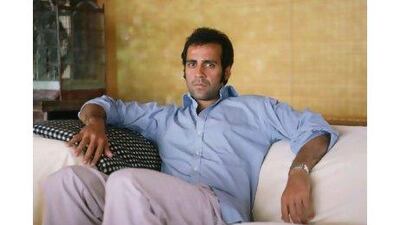As one of the most high-profile awards in the British literary calendar, the shortlist announcement for the Costa Book prize generally hits the headlines. But the choices for 2010 have provoked more discussion than usual - even for a prize that last year was unafraid to herald a low-key collection of poetry over the literary giant Colm Toibin.
The main controversy surrounds the biography category (in the Costas, the five genre winners go forward to compete against each other for the main Book of the Year prize). The judges were so startled by the paucity of good biography, that they have, controversially, shortlisted only three books, rather than the traditional four. Meanwhile, in the prestigious best-novel award, there was no crossover with the Booker shortlist - perhaps the world's foremost English-language literary prize. Indeed, one of the judges intimated that it wasn't a particularly strong year for fiction either. "We were not spoilt for choice in terms of books that were serious contenders," he told The Independent this week.
All of which overshadowed some more positive news to come out of the Costas this year: in the First Novel category, three out of the four nominees were, as the shortlist announcement rather broadly put it, "inspired by Asian culture". (To be eligible for the awards, a writer must have lived in the United Kingdom or Ireland for more than six months over the previous three years.)
Kishwar Desai's Witness the Night was praised for its "remarkable trick of transplanting a country house murder to modern-day India". Nikesh Shukla's Coconut Unlimited also impressed the judges, tracking a group of three boys, Amit, Anand and Nishant, in a coming-of-age comedy set in London's very different Asian communities. Finally, Aatish Taseer's book The Temple-Goers was praised for its "audacious and disturbing multi-layered story of modern Delhi", melding the lives of haves and have-nots in a style more akin to documentary than fiction.
The final book on the shortlist, Not Quite White - Simon Thirsk's exploration of Welsh nationalism - appears to be the odd one out. But judge Anita Rani, a BBC television presenter whose work includes the arts-and-entertainment show Desi DNA, says it's a simple coincidence that three of the names are of Indian descent.
"First of all, the books are there because they are all a great read," she says. "Yes, three of the authors are of Indian descent but each book has a unique voice. One is set in India, one in England, and one in India with a link to England. But they are all very contemporary and could only have been written now."
A coincidence it might be, but Rani is nevertheless excited by the quality of work emanating from the Indian diaspora.
"Perhaps it's got something to do with the wealth of stories to be told from such a fast-evolving nation. There's the varying stratas of society, of course, and its history of migration. Although Coconut Unlimited by Shukla is also a very English novel."
Rani knows all about Shukla - she provides the quote on the jacket of the book, which promises it will be "laugh-out-loud and refreshingly honest". This is both a blessing and a curse for the London-based author, filmmaker and poet; it's all very well for Rani to campaign for a book she clearly loves to be nominated, but it might be inviting accusations of favouritism if he actually won.
But Rani's right that India's diversity has provided the inspiration for a number of debut authors this year. Indeed, it would be possible to fill up another shortlist of first novels in some way related to India, headed up by Neel Mukherjee's A Life Apart, the story of a young man who leaves Calcutta for the promise of excitement in London. But he'll have to be content with his shortlisting last month for the new "South Asian Booker", the DSC Prize for South Asian Literature. Similarly, Manu Joseph can allow himself a twinge of surprise that his excellent Serious Men - which won the Hindu Best Fiction Award 2010 - didn't merit a mention at the Costas.
But the Costa Awards have always been skewed towards the mainstream rather than the excessively literary, which is probably why there's a murder mystery, a coming-of-age tale and a quasi-documentary on the shortlist. Books from the First Novel category don't tend to win the main prize. In fact, only four have done so since the format changed in 1985. But in celebrating literature from the Indian diaspora in such an impressively diverse way, you could argue that there's already been a small victory.
Find the full shortlist at www.costabookawards.co.uk.

